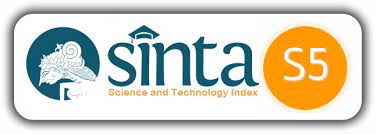AUTHOR GUIDELINES
PrimEarly: Journal of Primary and Early Childhood Education Studies (Journal of Primary and Early Childhood Education Studies) is published twice a year since 2020, is a peer-reviewed journal, and specializes in Islamic Education. Its purpose is to provide readers with a better understanding of the world. This development is through the publication of articles, research reports, and book reviews. Manuscripts submitted to the editor published by IJGIE will be considered if they meet the following criteria:
1. Scientific Characteristics, this journal publishes articles on the latest issues or trends that occur in the world of education, especially SD / MI education and Early Childhood Islamic Education, including: SD / MI Curriculum and Early Childhood Islamic Education, Education Pedagogy SD / MI and Early Childhood Islamic Education, Approaches, Models, Methods, Strategies, and Learning Techniques for SD / MI Education and Early Childhood Islamic Education, Technology in Education in SD / MI and Early Childhood Islamic Education, School Management SD Education / MI and Islamic Early Childhood Education and SD / MI Education Policy and Early Childhood Islamic Education
2. Manuscripts sent are manuscripts that have never been published in any publication or where other media have requested or considered no publication by attaching the Author's Statement.
3. Manuscripts must be written in American English (US English), not more than 5,000 words (or a maximum length of 5,000 words), including text, all tables, and pictures, notes, references and attachments intended for publication. All submissions must include abstracts and keywords using the PrimEarly template: Journal of Primary and Early Childhood Education Studies, using the font Californian FB, size 12 and with 1.5 spaces. Citations, passages and words in local or foreign languages must be translated into English;
4. Each manuscript is written sequentially, consisting of the title, author's name, abstract, keywords, content (Introduction, Methods, Research Findings, Discussion, Conclusion, and Bibliography;
5. The title must be short and to the point, allowed to include subtitles with a maximum total of 14 syllables;
6. Create the author's name, institutional affiliation, and e-mail address under the article title, and the author does not need to include an academic degree;
7. Abstract: A brief and factual abstract is required (maximum length of 200 words). The abstract should briefly state the research objectives, main results, and main conclusions. Abstracts are often presented separately from articles, so they must be independent. References should, therefore, be avoided, but if important, they should be cited in full, without reference to a list of references. Non-standard or unusual abbreviations should be avoided, but if necessary, the abbreviation should be defined at the first mention in the abstract itself;
8. Keywords: Immediately after the abstract, provide a maximum of five keywords, avoiding general and plural terms and some concepts (avoid, for example, 'and', 'from'). Thrifty with abbreviations: only firmly established abbreviations in the field qualify. These keywords will be used for indexing purposes;
9. PrimEarly only accepts electronic submissions (online). Therefore, writers must enter before submitting their articles. Please click here to enter;
10. Citation usually only requires the author's last name, year of publication, and (sometimes) the page number. All works cited must appear in the list of references at the end of the article and be arranged alphabetically. All notes must appear in the text as quotations (innote). Please ensure that any references cited in the text are also in the list of references (and vice versa). In-text citations should follow the reference style adopted by the American Psychological Association, 6th Edition;
11. If there is information and explanation relating to further clarification of the contents of the manuscript excerpt, use the bodynote;
12. It is advisable to use a reference manager for citation and bibliographies, such as Mendeley or Zotero;
13. You are referred to the American Psychological Association Publications Manual, Issue 6, ISBN 1-55798-790-4, a copy of which can be ordered from http://www.apa.org/books/4200061.html. Details on this reference style can also be found at http://linguistics.byu.edu/faculty/henrichsenl/apa/apa01.html.
Examples are as follows:
Audi, R. (2000). Komitmen Agama dan Alasan Sekuler. New York: Cambridge University Press.
Tabrani ZA. (2012). Kehidupan Masa Depan Pendidikan Islam di Indonesia. International Journal of Democracy, 18 (2), 271–284.
Dumanig, F.R. (2014). Strategi Modal Sosial dan Kesopanan dalam Membina Hubungan Etnis di Malaysia dan Filipina. Jurnal Ilmiah Peuradeun.2 (3): 23-38.
Kaylene, P., & Rosone, T. L. (2016). Perspektif Multikultural pada Motivasi Siswa dalam Mengajar Pendidikan Jasmani. Jurnal Ilmiah Peuradeun, 4 (1), 115-126.







.png)





